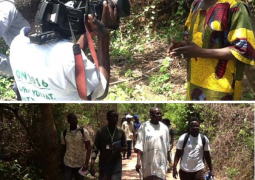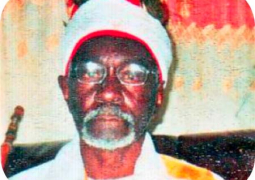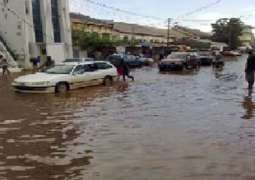
The Bite which appeared on your Monday edition on June 16, 2008 was dull in its factual presentation regarding the modus operandi of MOBILE TELECOMMUNICATION - A CASE OF COMPETING BUSINESS. The views expressed in the column woefully failed to address a number of germane issues pertaining to the advertisements put in place and deliberately employed by mobile companies in this country to lure their customer base. They do this so as to enhance their business and as well to generate huge revenues and profits at the expense of the masses who scarcely understand the mechanics employed to achieve such objectives.
A cursory look at the marketing and advertisement strategies at work easily reveals a pattern, which is akin to the operational procedures applicable to the lottery. Many of their clients hopefully and even rightfully purchase sim and scratch cards with the view to winning the various prices put on display namely to obtain
(a) Cars
(b) Generators
(c) 1 Million Dalasis
(d) A free trip to Mecca to perform the Hajj
(e) Free Air tickets to various destinations on calls placed on the mobile phone
(f) Weekly draw 25,000.
These prizes and their attendant advertisements are either on the TV, radio or bill boards and are seen and heard by many [who see them] as opening the floodgates of opportunity and luck. As a result they get customers really hooked on a gambling craze. The presence of bill boards carrying almost the same identical message scattered along our highways in the city and suburbs thereby impacting our environmental aesthetics scenery are now becoming an eyesore not to mention the distractions to good driving ability. Radio talk shows take place everyday sponsored by all mobile companies with their monotonous agenda, namely the advantages and disadvantages of the quantity and quality services offered as a panacea to acquiring scratch cards to win prizes.
This form of communication is not a good marketing strategy as its only value is to put pressure on clients with scant and meagre resources to focus on re-charging their mobile phones in the hope that prizes would be won. There are even clients who would forgo basic commodities required for life's sustenance in exchange for scratch cards which merely promise prizes which are determined by chance and luck. This is the gimmick as the statistical probabilities of winning are based on random selection which are governed by odds. It is not easy to beat the odds; this is why out of a population of at least 500,000 only one to three people stand the chance of beating the odds to hit the jackpot of 1 million Dalasis. This point can be further stretched by stating that since all mobile companies have a customer base of a minimum of 200,000 and say (sic) this number of clients procure cards at D25 every day, the daily revenue is D5 Million and this multiplied by 30 days is 150 Million. Putting all operational costs says (sic) D25 Million aside, these companies are left with a revenue profit of D125 Million. Since this is recurrent monthly revenue, the yearly earnings are a whopping D1800 Million.
This figure is not proportional to the incentives offered to motivate the clients to procure scratch cards to recharge their phones nor does it create a level playing field to give back part of these huge profits generated to the community who bankrolled the operation. What the marketing strategy does is it creates a few winners who are elated and even have cause to celebrate while the rest of the clients are left in animated suspense with the view to getting them spend more of their meagre resources on phone cards which give the expression that talk is cheap and that it would also earn them lucrative prizes. This is not for real. The winner of D1 million has reasons to be happy and even to celebrate. It should be noted that D1 Million in these days of escalating prices is a high sounding figure signifying little return for the winner. The erection of a fairly good dwelling house is now estimated between D500,000 and D700,000. There is also the need to make provisions for the expectations of the immediate and extended family. This kind of money dissipates into thin air within a short period of time and the owner is back to square one.
Not everyone who wins a car can fully sustain the running costs associated with it. Most winners end up selling their cars at rock bottom prices in order to have the advantage of short- term gains.
It is contrary to Islamic values to perform the pilgrimage to Mecca from earnings gained through the lottery or game of chance. As a practising Muslim, I have been told several times over that Islamic doctrines have postulated that hard-earned money saved during one's employment career is the only legitimate means that a Muslim should utilise to pay for the pilgrimage to Mecca. Any other earnings obtained from either the lottery or any game of chance is not acceptable. Lest we forget, our Republic is a secular state shared by different denominations (sic).
Why are Christians in the advertisement left out? The Catholics have holy places to visit -Rome is a case in point. Other denominations have as well their places in far distant lands. Why are they not catered for? They also have cell or mobile phones and recharge their phones like every one of us. Did a particular mobile company forget that we have Christian brothers who would wish to have the advantage of going out to their holy places by winning also in the game of chance? What this article seeks to highlight is the unevenness of the playing field. The mobile phone companies give out a pittance to lucky winners after amassing huge profits while failing deliberately to realise they have not given out significant items which should benefit the entire community. For example the President of the Republic, Alhagi Dr A.J.J. Jammeh, has issued a clarion call for Gambians to go back to the land with the view to mitigating the current food shortage whose impact is being felt everywhere because of escalating prices, especially on our staple food, rice. Mobile phone companies with their concomitant huge profits could pool their lottery resources to provide the following:
(a) Seeds
(b) Fertilisers
(c) Power tillers
(d) Tractors
(e) Farming implements
Through NADA, the phone companies can formulate their marketing and advertisement policies in this direction so as to complement the government's efforts and help boost farmers' production capabilities so as to enhance their socio-economic status. Another area where mobile companies could do something is to ensure that the quality of their services translates in increase of airtime allocated to enhance more talk time for their customers. Their calibrated meters run at fast speeds and in no time consume the credit it is supposed to facilitate cheap talk. A D100 scratch card for international calls lasts 3 1/2 minutes on straight talk instead of the advertised 6 minutes allocated time. It is even worse for local calls. My impression as recorded here should not be seen as casting aspersions on any mobile phone company but merely to highlight issues, which will hopefully usher in debate on the issues raised. The mobile phones are here to stay as they brought immense benefit to community which have now become close together. However it should also be pointed out that the playing field should be levelled for all of us to enjoy the game.
Editors Note:
We publish this piece by Saihou S. Njie in the interests of free speech. There are no doubting that some of the issues raised are very pertinent, except that Mr. Njie gives us and the readers the impression that he does not fully grasp the thrust of the write-up that prompted him to raise such thought-provoking points regarding the contrast between what our cell phone companies 'give back' to the society and the estimated profits they make from that very society. The thrust of the Bite piece in question, as the headline states, is the existence of competition in business and the attendant benefits to consumers but certainly not a look at the deficiencies of businesses in relation to their customers, though we concede that such an approach would have made the piece more interesting.
Nevertheless it must be pointed out that The Gambia's mobile phone companies have invested some of their profits back into Gambian society, most notably in the area of sports. For this we must be thankful because the unfortunate reality is that no private company essentially owes its customers anything. It is simply a money making tool for its investors and providing a service to its customers. For this reason all the tricks and gimmicks cited above are used to draw in customers and swell the coffers of investors. We must trust people enough to say that they must be in charge of their own destinies enough to spend their money wisely and not be duped into anything they do not want to do.
In conclusion we beg to differ with the contention that it is only hard-earned money from one's own employment that is recommended for Hajj to Mecca. Where does this leave the possibility of benefiting from sponsorship from one's child(ren) to go on the pilgrimage. What is more, whereas we agree that money earned from lottery or gambling is not fit to be used in sacred missions, we consider it debatable as to whether the current package from Gamcel can be classified as such given that the source of such a package, the accumulated profit of a company, is not exclusively earmarked for such but rather the package issues from the spontaneous benevolence of the company as a token of appreciation to its customers, few though they may be!




